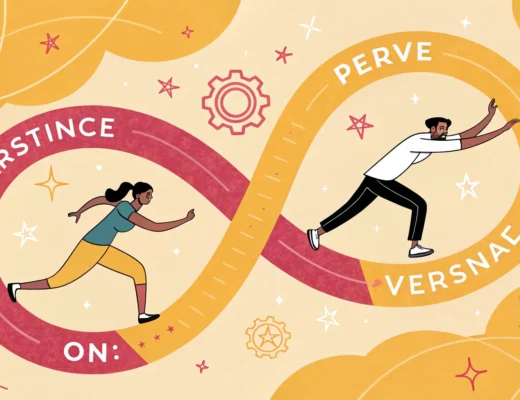The Reality of Marketing Results
What we can offer is expertise, not miracles. At my company, we’ve built our reputation on a foundation of transparency and realistic expectations. We know best practices. We’re skilled at execution. We have access to extensive data that informs our strategies. But we don’t pretend to be fortune tellers. This approach puts us at odds with many agencies that will say anything to keep you as a client. They’ll promise the moon, deliver a rock, and then blame external factors when results don’t materialize. I believe this practice isn’t just dishonest—it’s damaging to our entire industry. Instead of vague promises, we focus on clear communication about:- Exactly what actions we’ll take on your behalf
- The metrics we’ll track to measure success
- How we’ll adapt when initial approaches don’t yield expected results
- Where we see opportunities for quick wins (the low-hanging fruit)
- Realistic timeframes for seeing meaningful results
View this post on Instagram
How Technology Enhances (Not Replaces) Marketing Expertise
While I don’t believe in marketing miracles, I do believe in the power of combining human expertise with advanced technology. Recently, we’ve developed an AI system that helps us identify specific gaps and underperforming areas in a client’s marketing strategy. This technology doesn’t replace the need for experienced marketers—it amplifies their capabilities. It allows us to pinpoint problems with greater precision and develop more targeted solutions. But even with these advanced tools, we still won’t promise specific returns because marketing simply doesn’t work that way. What we will promise is a partnership based on:- Honest assessments of your current marketing
- Clear communication about our strategies and tactics
- Regular reporting on what’s working and what isn’t
- Continuous optimization based on real data
Choose Partners, Not Prophets
When selecting a marketing agency, look for partners who talk about processes, not just outcomes. Ask them how they’ll approach problems, not just what results they’ll deliver. Request case studies that show their problem-solving abilities, not just their success stories. The best marketing relationships are built on mutual trust and realistic expectations. We’ve maintained clients for years not because we promised them the world, but because we delivered consistent, measurable improvements while being completely transparent about both successes and setbacks. Marketing is not magic—it’s a mix of art, science, experience, and persistence. Anyone claiming otherwise is likely more interested in your money than your success. Choose partners who respect you enough to tell you the truth, even when it’s not what you want to hear. That’s the approach that has built our company, and it’s the approach that will continue to drive real results for our clients—not through empty promises, but through honest work and genuine partnership.Frequently Asked Questions
Q: How can I tell if a marketing agency is being honest with me?
Look for agencies that discuss their process in detail rather than focusing solely on outcomes. They should be willing to explain their strategies, show examples of past work, and talk openly about potential challenges. Be wary of guarantees that sound too good to be true—they usually are.
Q: What realistic expectations should I have when working with a marketing agency?
Expect gradual, measurable improvements rather than overnight success. A good agency will set clear KPIs, provide regular reporting, and make data-driven adjustments to strategies. Depending on your industry and goals, meaningful results typically take 3-6 months to materialize.
Q: How does AI actually improve marketing strategies?
AI helps identify patterns and opportunities that might be missed by human analysis alone. It can process vast amounts of data to pinpoint underperforming areas, suggest optimizations, and predict which strategies might work best based on historical performance. However, AI works best when guided by experienced marketers who can interpret its findings within the proper context.
Q: What questions should I ask before hiring a marketing agency?
Ask about their communication process, how they measure success, what happens if initial strategies don’t work, and how they stay current with industry changes. Request case studies similar to your situation, and ask to speak with current clients. The right agency will welcome these questions rather than deflecting them.
Q: Why do so many agencies make unrealistic promises?
The marketing industry is highly competitive, and some agencies resort to overpromising to win business. Many clients also prefer hearing optimistic projections rather than realistic ones. This creates a cycle where agencies that make bold claims get hired, even though those that set realistic expectations might deliver better long-term results.






